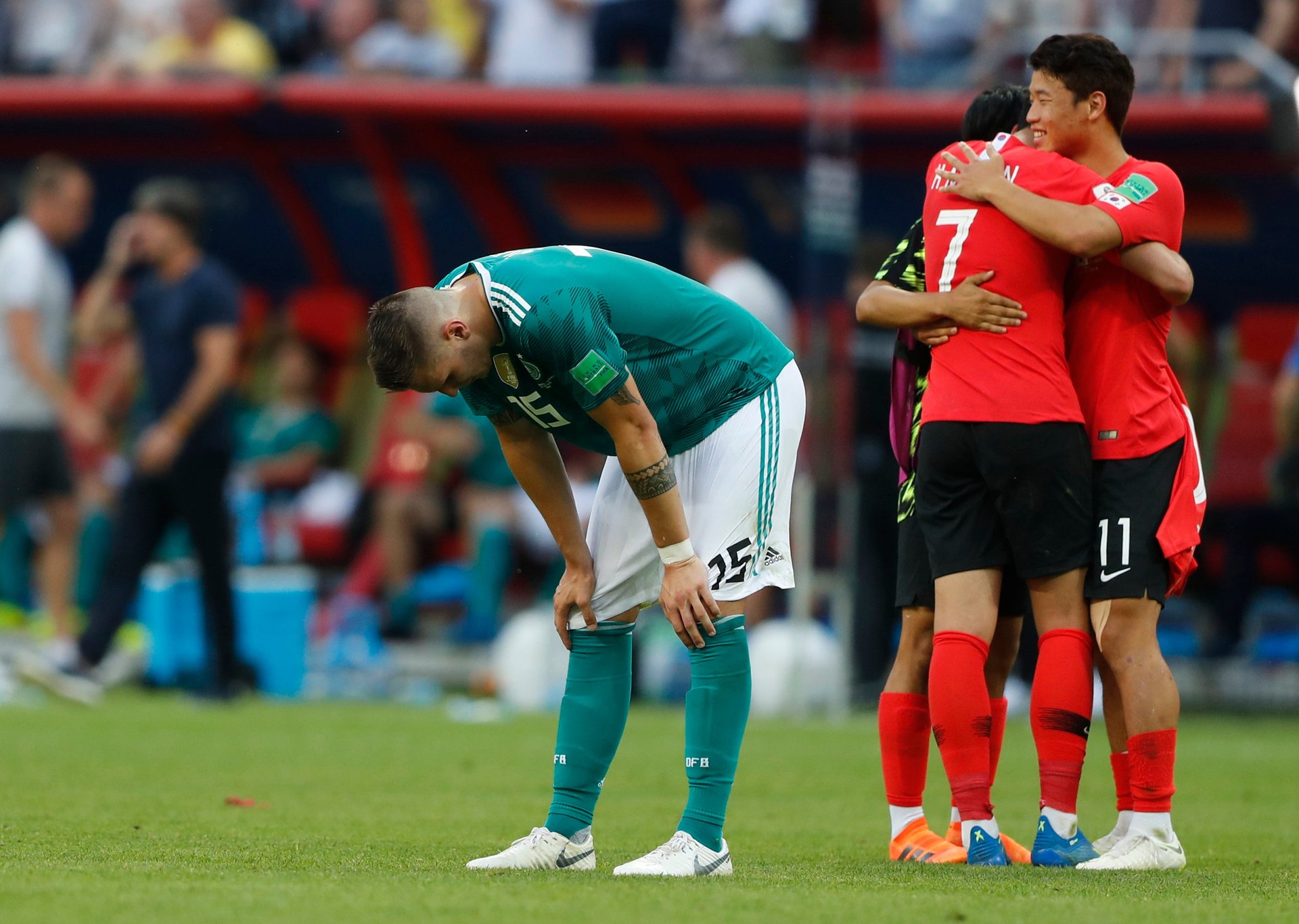The same thing that saved Germany has just knocked the team out of the 2018 World Cup
Germany ran out of luck. Two minutes into the second half’s stoppage time, South Korean player Kim Young-gwon scored the first goal of the game. Moments later, South Korea scored another, beating Germany 2-0 and knocking them out of the tournament.


Germany ran out of luck. Two minutes into the second half’s stoppage time, South Korean player Kim Young-gwon scored the first goal of the game. Moments later, South Korea scored another, beating Germany 2-0 and knocking them out of the tournament.
Just four days ago, it was the Germans scoring last-minute goals. Toni Kroos’s goal off a free kick during the 95th minute of Saturday’s (June 23) match sealed the victory for Germany over Sweden, 2-1, and kept the team’s hopes of advancing to the knockout round alive. South Koreans dashed those hopes.
Scoring goals during stoppage time is dramatic, but it’s not uncommon. At this year’s tournament, goals scored during stoppage time have decided the fate of many teams, including Germany.
Scoring goals during stoppage time is more common now
It hasn’t always been this way. Scoring during the time tacked on to the end of each half to account for the lost play time used to be rare. There were none in the first five World Cups. In the 1958 championship game, Brazil claimed a 5-2 victory over Sweden with the 5th goal scored by the Brazilian player Pelé during the second-half stoppage time.
Scoring a goal during stoppage time has only become more frequent in recent World Cups. For the 42 games that have already played during the 2018 World Cup, 16.4% of the goals were scored during stoppage time.
While it’s possible that teams have become better at scoring under pressure, the amount of stoppage time in recent World Cups has increased significantly.
World Cup games have gone longer
The average stoppage time—adding up that of the first half and the second—of all the 90-minute games at the 2010 World Cup was 4.3 minutes. In Brazil in 2014, its was 5.4 minutes. This year, the average stoppage time in the 42 group-stage games played so far is 6.4 minutes. In the South Korea-vs.-Germany game, the referee awarded 12 minutes of additional time: three in the first half and nine in the second.
The average 6.4 minutes of stoppage time is longer than the median stoppage time of any of the top European leagues in the past five seasons. A lot of that has to do with the introduction of the Video Assistant Referee (VAR) system at this year’s tournament. Consulting a machine in the middle of a game takes time. As a result, referees add more play time at the end of each half.
Players on both teams feel the urgency during additional time. The 101 stoppage-time goals scored since 1958 have been pretty evenly split between losing teams and leading teams.